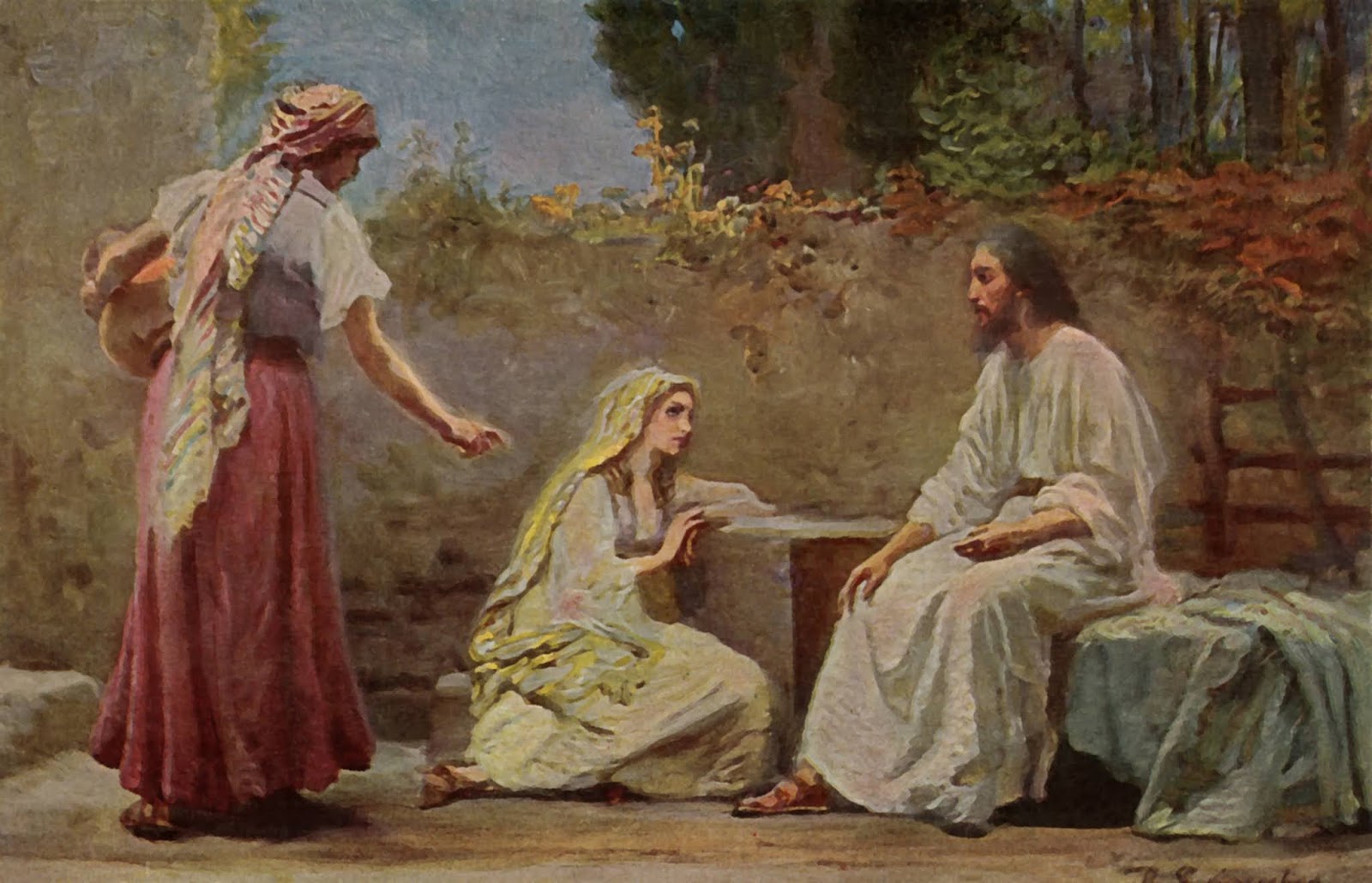
This Sunday’s Gospel is a continuation of last week’s and again puts us in the school of Jesus on his final journey to Jerusalem. If last time, however, the occasion was a conversation with a scholar of the Law, today’s is Jesus’ stop at the home of “a woman whose name was Martha” and his dialogue with her (or rather their repartee) about her sister Mary’s attitude. This continuity and complementarity between today’s Gospel passage and the previous one helps us to understand in a new and perhaps even more correct light the fundamental teaching that Jesus left not only to Martha on that occasion but also to every one of his disciples for all time.
1. From the Twofold Commandment of Love to the Two Attitudes Toward Jesus: A Necessary Clarification
As already pointed out, the episode of hospitality in Martha’s house occurred immediately after Jesus’ confirmation to a scholar of the Mosaic law of the validity of the twofold commandment of love for God and neighbor through which one can inherit eternal life. Through the original parable of the Good Samaritan, he had taught a new way of loving the other, which consisted in becoming a neighbor to every needy person beyond all limits, transcending differences of nationality, race, religious group, or enmity.
Now, in the home of the two sisters Martha and Mary, Jesus was faced with two attitudes that seem to reflect, in practice, these two aspects of love recommended by the Law and confirmed by Jesus himself. In fact, Martha hosted Jesus when he “entered a village,” just on the model of the patriarch Abraham who joyfully and generously welcomed guests who passed through his tent, as the first reading reminds us. With such a gesture, Martha not only put into practice the time-honored tradition of hospitality of her people, but also demonstrated, nay, fulfilled an important aspect of love of neighbor by caring for the needs of Jesus and his disciples who were guests in her home. On the other hand, Mary, her sister (most likely the youngest, because the house belonged to Martha), had a different attitude: “[she] sat beside the Lord at his feet listening to him speak.” The verb “listen” in this brief description spontaneously refers back to the exhortation to love God: “Hear, O Israel! The LORD is our God, the LORD alone! Therefore, you shall love the LORD, your God, with your whole heart, and with your whole being, and with your whole strength (Dt 6:4-5). Mary thus seemed to be a practical example of the commandment of love for God, as she listened with her heart to the divine teaching at the mouth of the Master Jesus.
From this perspective, the different behaviors of the two sisters toward Jesus are not opposed to each other, but complementary and equally necessary, reflecting the practice of the two aspects of love recommended in God’s Law.
2. “You Are Anxious and Worried About Many Things”: Jesus’ Gentle Correction of Martha’s Love
In this context, what Martha is doing to welcome Jesus is more than commendable and necessary. The only problem, as is clear from the text, is that according to her she is “burdened with much serving” for Jesus. This has put her in crisis, to the point of criticizing her sister’s and even Jesus’ indifference: “[she] came to him and said, ‘Lord, do you not care that my sister has left me by myself to do the serving? Tell her to help me.’” This exchange has an amusing side to it. It demonstrates the strong character of Martha, the mistress of the house, who speaks her mind, even in front of Jesus, the distinguished guest. So, if in front of the guest Martha was able to say this, we can imagine what and how she will address her sister after all the guests have left!
In any case, the Master Jesus, precisely because of what happened, had the opportunity to correct that attitude of loving one’s neighbor according to the human view that then ends up with nagging criticism of those who “do not do as I do!” He called Martha twice: “Martha Martha”, not because she was deaf or distracted, but to call her attention to a very important message, as God did in the OT with His servants Abraham, Moses, and Samuel. That message is precisely the one that from now on every one of his disciples must learn by heart: “you are anxious and worried about many things. There is need of only one thing.”
The emphasis here falls entirely on the “only one thing” that is needed. The rebuke of worrying “about many things” serves precisely to leave room for the one thing that Jesus insists is necessary. In the same vein, Jesus even advised his disciples on other occasions “not to worry” about what to eat, and what to wear (cf. Lk 12:22,25,26; Mt 6:25,27,28,31,34). Such an attitude of detachment in the lives of Jesus’ disciples, therefore, amounts precisely to a total orientation towards God and his Kingdom, the “only one thing” necessary for them. This priority in discipleship is the key to the practice of loving our neighbor according to God’s thinking and not according to human thinking! Serving Jesus and our neighbor must be constantly examined and purified according to the primacy of “only one thing” so as not to fall into the frequently paradoxical situation, that is, in the commitment to serve others in the name of love, I come to lose both peace within me and peace with the very people I am serving!
3. “There is Need of Only One Thing”: The Lesson for True Discipleship
What then is the necessary “one thing” to which Jesus refers? It is certainly the attitude of listening to Jesus’ words, as many have rightly noted in the text: “Mary who sat beside the Lord at his feet listening to him speak.” However, it is also worth noting a detail in the text that often escapes the attention of readers: Mary is “sat beside” Jesus. Such a position is the usual one of disciples in the school of a Master, according to Judeo-Rabbinic tradition. Mary’s listening is the specific listening of a disciple before Jesus, whom St. Luke the Evangelist mentions here precisely by the solemn title “Lord” in order to accentuate the figure of the divine teacher. Her listening is, therefore, the attentive and obedient listening to God’s teaching, imparted and explained with authority by Jesus. And this is precisely the one necessary thing that Jesus called the “better part,” for He Himself will proclaim: “Blessed are those who hear the word of God and observe it.” (Lk 11:28).
According to rabbinic tradition, the study of Torah (God’s Law) is the best of all activities (m.Aboth 2:8; 3:2). Jesus’ recommendation regarding Mary’s attitude is similar, but with an emphasis on listening to Jesus’ words. This attitude turns out to be fundamental and necessary for his missionary disciples. In fact, he chose the twelve apostles, “that they might be with him” before sending them out on mission to proclaim and heal (cf. Mk 3:14). Here is true missionary discipleship: to be with Jesus, listening to his words with all of one’s heart and all of one’s mind, and then faithfully passing on his divine message to others on the journey of life. So be it. Amen!


